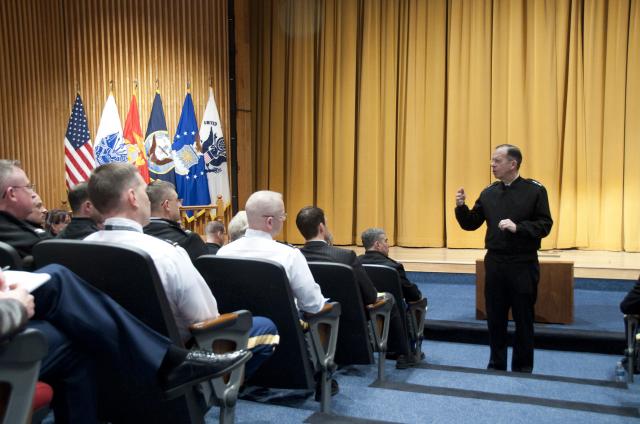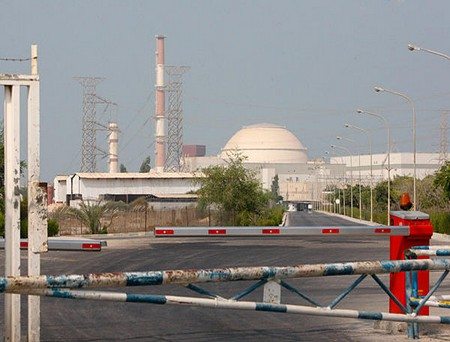The tremendous sacrifice of servicemembers and their families, the changing and challenging nature of warfare and the ability to attract and retain quality military and civilian leadership were all topics discussed by the military’s top officer during a talk in Bliss Hall, here, Feb. 10.
Adm. Mike Mullen, the 17th chairman of the Joint Chiefs of Staff, spoke to the Army War College student body as part of the Commandant’s Lecture Series, which this year is focused on officership and the profession.
“This is an extraordinarily difficult time to lead and serve,” he said. “What our country has asked us to do and, by virtue of that, what we have asked our families to do, is a tremendous sacrifice. I owe a debt of gratitude to each one of you and your families. This is the greatest military.”
Mullen said that, for the last 10 years the military has been faced with a rapidly changing environment that places an emphasis on international, interagency and joint operations.
“We have moved far beyond the U.S. being able to do it all alone,” he said. “The interconnectivity of the world has changed how we must adapt and operate. We must fully leverage what the last 10 years of fighting wars has taught us. We are now truly a joint and international force. We need to make sure we don’t lose those skills.”
Just as important, according to Mullen, is to remain connected to those we serve.
“We can’t drift away from the American people,” he said. “We just can’t keep talking to ourselves. We have to tell them who we are and what we are doing. They want to know us better. How we make that connection is key.”
He said that current relationships by members of the Guard and Reserve may show a path to success.
“We have to leverage our great Guard and Reserve forces who know how to make these connections,” he said. “They know how to connect with our communities and their leaders. We wouldn’t be where we are today without them. ”
He also spoke of the importance of attracting and retaining quality talent, whether military or civilian.
“We need great talent,” he said. “The missions and equipment we have don’t matter if we don’t keep the right people. We are going to have an even more difficult time if we don’t.”
Part of retaining those quality junior officers and noncommissioned officers, Mullen said, was making sure that their families are being taken care of.
“Many of our families today don’t know what it’s like to serve in a time other than war,” he said. “We don’t really know how this has fully affected our families. All we know is that it’s our duty to do whatever it takes to give them what they need.”
Mullen reaffirmed his commitment to funding family programs and initiatives like family readiness groups, counseling and post-traumatic stress services.
“Every dollar must be spent well,” he said. “It has to go to our people.”
Mullen also spoke briefly on the current operations in Iraq and Afghanistan.
“You should be proud of what you have accomplished in Iraq,” he said. “Challenges remain, but every time I go there the changes are night and day.”
In Afghanistan, he said, the key to stability is legitimacy in the government.
“It’s not just about security there,” he said. “This year will be different from last year, just as the year before that was different, but we have the forces in place to help achieve stability,” he said, adding that nearly 35,000 Afghan trainees are preparing to safeguard their own nation.
“We have been there a long time, but now we have the resources,” he said. “Stability in the region will continue to be a challenge but change is coming.”
The instruments of change include those gathered in Bliss Hall.
“I hang my hat on the leadership of people like you,” he said of the students. “We’re going through some difficult times, but will be successful because of you.”











